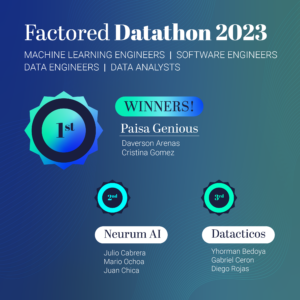Did you know that AI is poised to save banks an aggregate potential of $447 billion by 2023? This is in many ways thanks to the driving force of digital transformation that’s behind the changes we’ve seen in the finance industry over the past few years.
Over the span of a decade (or maybe a little more), account holders stopped physically going to their banks for day-to-day transactions, and instead are now able to check their account balances online, apply for credit cards from their phones, and even deposit checks electronically. These modern solutions are only made possible by modern technologies like AI and data science.
AI Implementations
So what are some AI implementations that can be deployed throughout the financial industry?
Deep Learning
Deep Learning uses neural network methods, including computational models used for algorithmic trading, price forecasting, and fraud detection. These can also help financial organizations with portfolio management, operations, risk management, credit assessments, and customer service.
Forecasting
Traditional forecasting is a labor-intensive process that consumes considerable time and resources. That’s because it requires many people to manually review business data, run statistical calculations, and create outlooks for different markets and regions. With AI, data can be aggregated and processed with far greater accuracy, speed, and scalability than what is humanly possible. This allows companies to improve and streamline their financial forecasting calculations.
Model Interpretability
Insight into model behavior is essential for safety-critical applications like those used in the finance industry. Understanding the behavior of machine learning models can help predict the price movement of stocks, and the probability of home equity line of credit default.
Factored’s Solutions for the Finance Industry
To better understand how these AI implementations and models work, let’s look at how we here at Factored have deployed them for some of our clients.
Building a Credit Card Default Model
One of our clients needed to create better models for credit card default prediction for its current clients without utilizing any additional features than those already available. Therefore, we used deep learning models to encode temporal features that classic approaches couldn’t facilitate during optimization. This created a more accurate representation of customers who’d been using the product for more than six months (50% of users), and reduced the effort required for feature engineering.
Detecting Identity Fraud
Factored was tasked with creating a model that could improve identity fraud detection in credit card users while maintaining variable explainability. Therefore, we implemented an experimentation pipeline to detect the best model given a set of variables. A deep analysis of variables was established, improving model accuracy and improving the detection rate for cases of identity fraud by 7.5%. This saved our client both time and money, as they no longer needed to spend on or carry out additional processes.
Providing Innovative Credit Scoring Methods
Traditional credit scoring requires clients to have a credit history; when they don’t, they’re either denied a credit card application or given excessive interest rates. Factored was tasked with building an alternative credit scoring system for small and medium enterprises (SMEs) to assess and understand their own financial health. Using a combination of machine learning and credit risk expertise, we built a set of models that allowed us to measure the credit health of SMEs using only transactional data from their bank accounts. This created a scalable web application for SMEs to link their bank accounts and monitor their own credit health.
Ready to Get Started?
According to a pre-COVID report by Gartner, 40% of major businesses were anticipated to implement AI solutions in 2020, and more than half were predicted to double existing implementations in 2020. Despite the pandemic’s effect on these numbers, there is no doubt that AI has become a big part of the financial industry—and it’s not going anywhere anytime soon.
Learn how to leverage the power of AI and data science to make your business more efficient. Book a call with Factored today.






